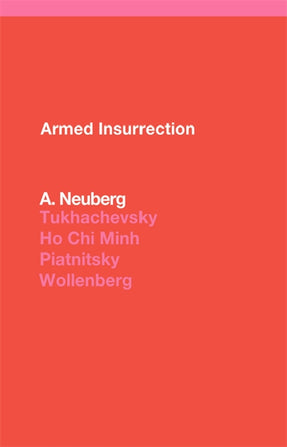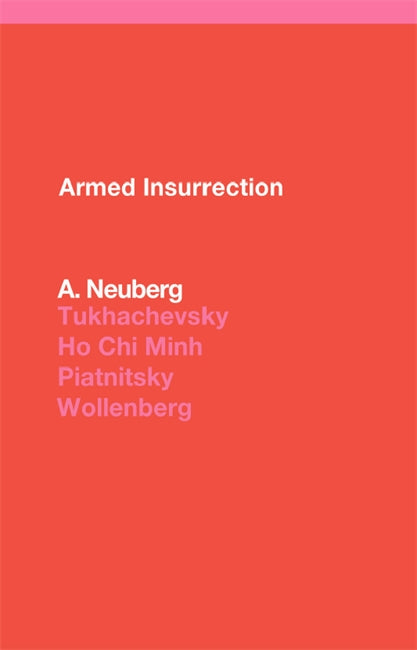
Armed Insurrection
From the Paris Commune in 1871 to Hué, Cordoba and Detroit in our day, the history of of proletarian insurrections is largely uncharted—particularly in its strictly military and technical aspects. Yet for Marx, Engels or Lenin it was axiomatic that 'insurrection is an art', and that without the most careful preparation and planning for insurrection (as in Hué), the spontaneous revolutionary action of the masses would always be defeated by the organized violence of the ruling class (as in Cordoba or Detroit).
This book was produced in 1928 as a practical insurrectionary manual for communists. It discusses the role of armed insurrection in the Marxist-Leninist theory of revolution, analyses a number of insurrections—both successful and unsuccessful—with the aim of determining the conditions for victory, and gives detailed information on the tactics of street fighting—ranging from the respective advantages of offensive or defensive action to the best method of building a barricade. Written in Moscow under Comintern auspices, it is a classic Third Period document. Its republication will contribute to the recovery and appraisal of the early years of Soviet and Comintern history which is so essential an ingredient in the forging of all revolutionary theory and practice today.
Published under the pseudonym of 'A. Neuberg', the work was in fact written by a group of leading Comintern political and military experts. One of the authors, Erich Wollenberg, military leader of the Bochum rising in North Germany in 1923, has written a new introduction for this edition (the first edition in English) in which he gives his own account of how the book came to be written, analyses the unstated political background to the various insurrections it examines, and identifies such of the authors as were known to him. These include Mikhail Tukhachesvsky, then second-in-command of the Red Army, Ho Chi Minh, Vice-President of the Secretary of the Comintern, and the German Communist and leader of the Hamberg Insurrection, Hans Kippenberger. The work was assembled by the Agitprop section of the Comintern, headed at the time by Palmiro Togliatti.
